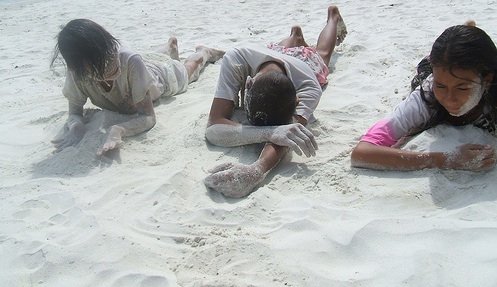 Editor’s note: The following post was written by Professor Elkind, chief scientific advisor for Just Ask Baby. David Elkind is currently Professor Emeritus of Child Development at Tufts University. He was formerly Professor of Psychology, Psychiatry and Education at the University of Rochester. Just Ask Baby is a site devoted to:
Editor’s note: The following post was written by Professor Elkind, chief scientific advisor for Just Ask Baby. David Elkind is currently Professor Emeritus of Child Development at Tufts University. He was formerly Professor of Psychology, Psychiatry and Education at the University of Rochester. Just Ask Baby is a site devoted to:
providing our community of members with all the information, resources and support they need to help their children develop socially, emotionally and intellectually – and at their own pace – during the critical early years of their life…The information we provide is 100% based on decades of scientific research by some of the leading child development experts. We are also 100% un-sponsored by manufacturers and 100% un-influenced by advertisers.
The Lessons of Sand Play
While watching my great-nieces, Raven 3, and Stella Blue 5, at the beach on Cape Cod this summer, I was again impressed by the freedom, involvement and concentration of young children’s beach play.
They dug holes in the sand and enjoyed simply flinging the sand with their shovels; they filled pails with sand and built a sand castle, then filled the pails with water and washed it away. Stella Blue wanted me to bury her in the sand, and seemed delighted as I poured buckets of sand on her feet. She kept urging me to cover her toes as well. These two young children happily occupied themselves for hours on the warm beach sand. This kind of play is easy to understand but has a larger lesson as well.
When children are at home, at school, or at a public place such as restaurant, they are always being told by adults to follow the rules. At home they have to pick up what they drop, be sure and not soil their clothes, be careful with their toys and watchful about not breaking any household furnishings. At the beach they are free, at the beach it is okay to get dirty and covered with sand (you can just run in the water and wash it off), you can build sandcastles and destroy them, and no one really cares. The beach is a place where children are unfettered from the rules that heretofore seemed God given and unbreakable. They learn that rules are not absolute and it is okay to get dirty and messy in some places and in some situations. In many ways the beach is the child’s own world and they cherish having a place of their own where they can break the adult rules and set their own. It is for the same reason that older children love to build, and to inhabit, tree houses and forts.
Children’s beach play has a lesson for parents as well. Such play reminds us that children are smaller and weaker than we are, and that they are dependent upon us for food, clothing, protection and care. No one likes to be dependent and this is as true for children as it is for adults. While it is necessary for us as grown-ups to set limits and to socialize our children into the adult world, we also need to find opportunities, such as beach play, for them to be independent and to express themselves in their own way. Such play, in which they create their own rules and are unrestrained by adult conventions, gives them the understanding, confidence and self assurance that one day they too will have control over their own destinies.
Image: joelshine on Flickr under a Creative Commons License
A very well written article. Children all over the world, even those living in great hardships, can often find in themselves the ability to play and be free of spirit. It is our responsibility to protect and teach them while realizing how very much they love and teach us.